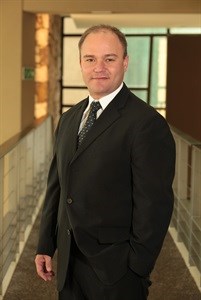
Top stories






More news














Logistics & Transport
Maersk reroutes sailings around Africa amid Red Sea constraints


Morné Cronjé, Head of FNB Franchising, said: "In South Africa, the franchise industry has remained solid despite challenging economic conditions and the country remains attractive to local and international franchise brands. The industry's contribution to GDP is estimated at almost 12.5% with more than 600 franchised systems operating and over 31,000 franchised businesses and employing just over 320,000 people countrywide. However, the shift in the franchising landscape is changing and businesses need to start looking and planning for the future."
FNB's Chief Economist, Sizwe Nxedlana, added: "South Africa's economic growth has been exceptionally weak in recent years. GDP growth has averaged at 3.1% since 1994, but we have been nowhere near that since 2012. The weak growth environment is likely to persist, with economic growth expected to average at 1.4% this year and slow to 1.2% next year. However, a lot of the weakness is concentrated in the mining sector and the supply chain linked to that. There are sectors that continue to grow."
Cronjé said that in order to plan for the future, a rejuvenated business environment is key to ensuring the survival and growth of many franchises. "Currently franchise businesses, big and small, face many challenges. We are seeing slower economic growth, increased unemployment, new regulations, imposed water restrictions and labour unrest - all these factors increase the cost of doing business and make it difficult to justify new investment opportunities."
There is also evidence of increased pressure on the consumer and people will be more selective on how they spend their money.

"Consumer confidence is low. Consumers are mostly negative about South Africa's economic outlook and as a result don't see the present as an appropriate time to buy durables. In other words, consumers are adopting a defensive strategy. This suggests weak growth in household spending, particularly on durable goods. In summary, we expect the combination of continued weak growth in domestic expenditure coupled with partial compensation from nett trade to result in the South African economy posting weak growth in the 1% to 1.5% range this year and in 2016," said Nxedlana.
Franchises, therefore, need to continue to innovate and adapt to changing market conditions to ensure that they stay abreast of changing times. At the same time, businesses have become more risk averse, but are willing to take calculated risks to grow and develop their businesses.
"An aggressive strategy that focuses on the franchises value adds, the customer's needs and wants, innovative products and solutions needs to be looked at. In order to capitalise on new investment opportunities, franchisees and franchisors must continually invest in developing and assisting new talent in the market," concluded Cronjé.